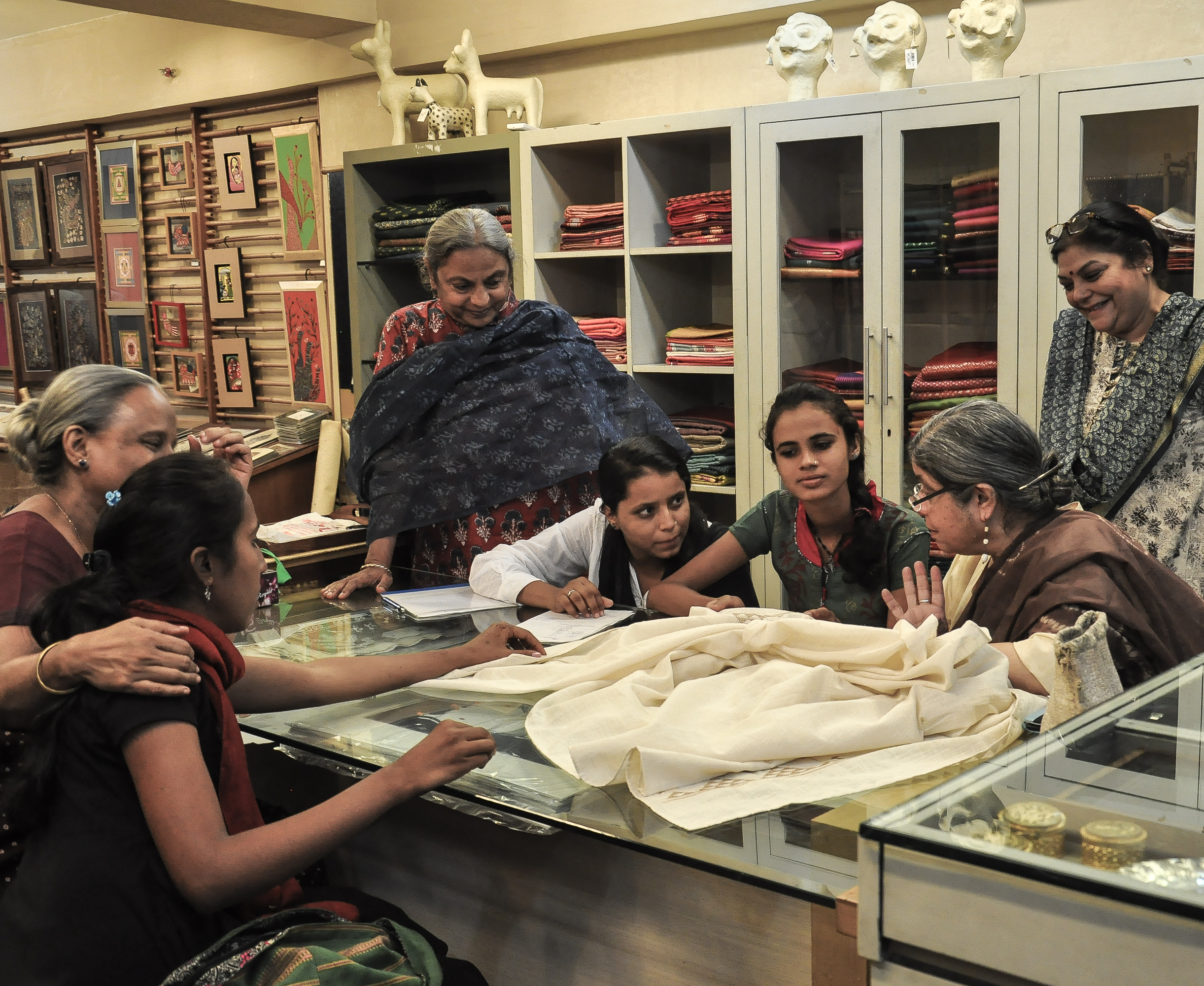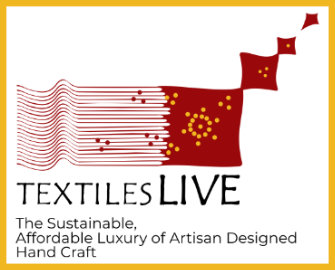Art or Merchandise; Manufacturing or Creation?
 July 29, 2023
July 29, 2023
Laxmiben and her partners Taraben and Tulsiben discuss their upcoming suf embroidery exhibition with chikan embroidery artisans who they had mentored with Manjari Nirula and other members of Delhi Crafts Council, 2015.
In a previous post, I argued that Industrialization changed the character of craft. Handmade objects that had been culturally valued had to be re-valued as commodities.
Commodities- an industrial concept- are production line; each unit is interchangeable. The price of each unit, on any day at any location is the same for all makers. Individual producers must take what the market offers, and buyers don’t have a preference over whose product they buy. Commodities tend to be raw materials- corn or yardage.
The alternative is differentiated products –different than those of their competitors (and these tend to be finished products). Makers can argue that their work is better, and thus more valuable, if the perceived value of their work is high. Today, this is done by creating a brand and promoting it. Traditionally, craft was always differentiated. Clients in Kutch perceived the unique qualities of artisans’ work. They were in fact connoisseurs!
Our world is filled with commodities- mass produced textiles and garments that have superseded their hand made predecessors, appropriate for everyday needs- bedsheets, school uniforms, fashion that is destined to become obsolete in a season or two.
My question is, why is hand craft today seen as commodity? With the potential to epitomize individual, differentiated work, why is craft emulating industrial production? Instead, could it fill needs for special acquisitions? Could artisans aim to create more value rather than greater quantity?
Artisan designers understand this concept. When questioned how she could possibly prepare for an exhibition in a short time, Laxmiben quickly responded, “I’ll make fewer higher value embroideries.”
Industrialization changed the world’s perceptions and values. We can all re-think and alter expectations. Mid-talk on craft, I was questioned. “Production?” the man asked. It seemed an industrial term. “No,” I corrected myself. “Not production; creation.” And I thanked him.



